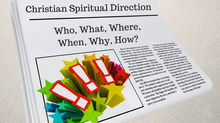Mother’s Day: A Difficult Day for Some

It comes as no surprise that Mother’s Day is in the top three holidays for card giving, with approximately 133 million cards exchanged annually and nearly $20 billion spent on meals out, flowers, cards and gifts. But did you know that Mother’s Day was not originally intended to be a consumer bonanza? It also was never intended to be an all-inclusive holiday that targeted every mother, grandmother, aunt, sister, God mother, expectant mother, and maybe someday I’ll be a mother, and on and on.
In his 2014 National Geographic article commemorating the 100th anniversary of Mother’s Day, Brian Handwerk explains that Ann Reeves Jarvis founded Mother’s Day in the 1850’s, as work clubs comprised of mothers. Their goal was to improve sanitary conditions and lower infant mortality in West Virginia. During the Civil War, these work groups also tended to the wounded on both sides of the conflict and endeavored to unite former enemies after the war.
In response to Anne’s death, her daughter, Anna Jarvis, envisioned Mother’s Day as a day to spend time with your mother and show her your appreciation. It was not a day to celebrate all mothers, but a day to celebrate the “best mother you’ve ever known” – your own mother.
The first organized Mother’s Day observances started in 1908, and in 1914 President Woodrow Wilson officially proclaimed the second Sunday of May as Mother’s Day. The holiday quickly became a commercial extravaganza and much to Anna’s sadness quickly lost its original purpose. In fact, Anna spent her fortune trying to keep Mother’s Day from being an excuse for commercial excess and to return it to the reverent day she envisioned. She failed, and died penniless in 1948.
As you celebrate Mother’s Day, be mindful of the holiday’s original intent and that this over-the-top emphasis on all things motherhood can be difficult for some, especially for those who have never had children or who may be grieving the loss of a child or their own mother. It can be isolating and a cruel reminder of what is missing, especially as people engage in well-meaning political correctness of trying to force fit the holiday to include all women and girls.
If Mother’s Day is a difficult day for you, please be kind to yourself. It is okay to be sad and prefer not to take part in all the hoopla. If you are struggling with the loss of a loved one, please call me at 404-771-9335. I can help.
The Grief Recovery Method® provides a safe, confidential opportunity to gain a better understanding of grief and the myths and misinformation our society perpetuates about grief and the grieving process. This method teaches specific action steps you can take to say goodbye to the pain and heartache caused by loss. It also helps you to let go of negative feelings such as guilt, sadness, anger and contempt. By doing so, you will be able to move on and be happy once again. The Grief Recovery Method® is not therapy, but an educational program. It is available in an eight-week grief support group or a seven-week one-on-one format.
© Ekteleo Ministry, 2016. All Rights Reserved.
Handwerk, B. Mother’s Day Turns 100: Its Susprisingly Dark History. National Geographic, May 9, 2014. Accessed from http://news.nationalgeographic.com/news/2014/05/140508-mothers-day-nation-gifts-facts-culture-moms/
James, J. W. and Friedman, R. 2009. The Grief Recovery Handbook (20th Anniversary Expanded Edition). Collings Living, New York, NY.






























